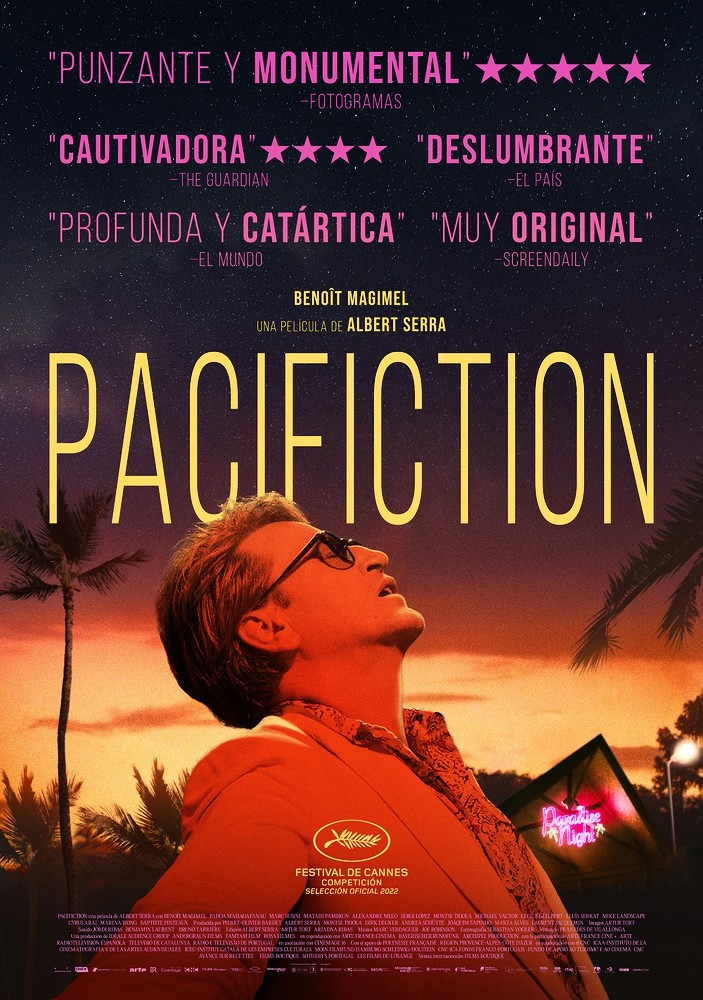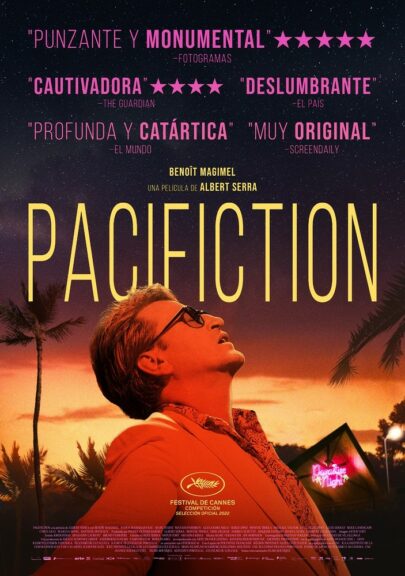
On the island of Tahiti, in French Polynesia, the High Commissioner of the Republic De Roller, representative of the French State, is a man of calculation with perfect manners. In official receptions as well as in illegal establishments, he constantly takes the pulse of a local population from which anger can emerge at any moment. Especially since a rumor is insistent: a submarine has been sighted whose ghostly presence would announce a resumption of French nuclear testing.
Serra decides from the very first scenes to invite the spectator to penetrate the walls of a nightclub, which we quickly imagine will set the tone of the whole: a denunciation of vulgarity. Just as quickly we integrate that the pre-apocalyptic atmosphere established will not leave us anymore, the time, suspended, has come for a man whose steps we will follow, to pass the hand, to withdraw from the political spectacle, with a cynical thought, even nihilistic.
This character, who represents the show in which he participates in the front row, gradually catches us and questions us by the consciousness he develops, the detachment he shows, by his positions very much above the fray. The dialogue, literary and profound, accompanies a setting whose underground aspects remind us of the atmospheres so dear to Fassbinder. Superb by their poetic rhythm, nihilistic, they come to rest with force on images which corroborate the subject. Plunged into this decadent onirism, close to a dystopia, the three hours of the film do not weigh at all, on the contrary, they highlight a narrative construction very new-novel: in the distance the dark clouds announce the storm, this one gets closer, the explosion could be terrible. Will the announced catastrophe take place? Who will be safe? Perhaps not the spectator, set up as a judge in front of this reflection of the society that had already haunted Serra in some of his previous works…
Directed in the paradisiacal setting of Tahiti, where he takes the tone, the pulse but also the counter-field, Albert Serra’s cinematographic proposal appears to us philosophically and visually strong, with a Benoît Magimel masterfully directed, surrounded by secondary characters who intrigue us by their blind and calculated conformity or, on the contrary, their facade anti-conformism. Paradise lost, apocalypse to come, men are not fooled, politicians act on purpose, few by conviction, many as contributors to the show. The thought of Schopenhauer or Debord is never far away: Serra entrusts Magimel with some monologues of a rare power and scope that mark, resonate and even manage to move, by their intrinsic intensity but also the body and vibrato that Magimel gives them more than ever magnetic.

